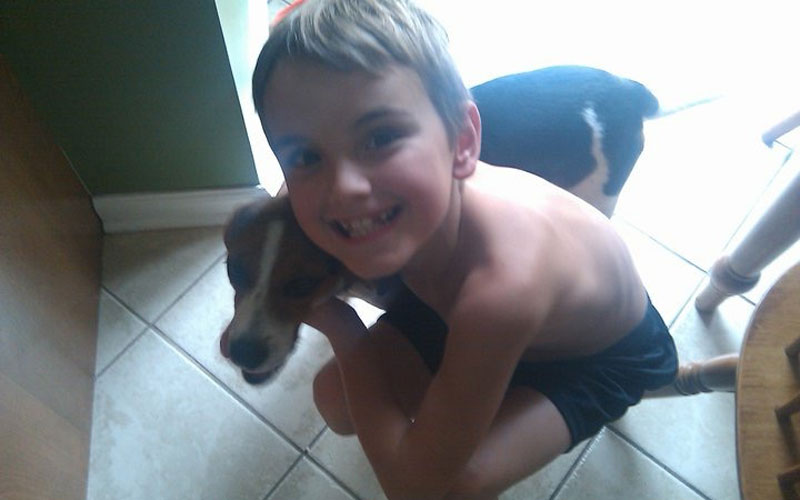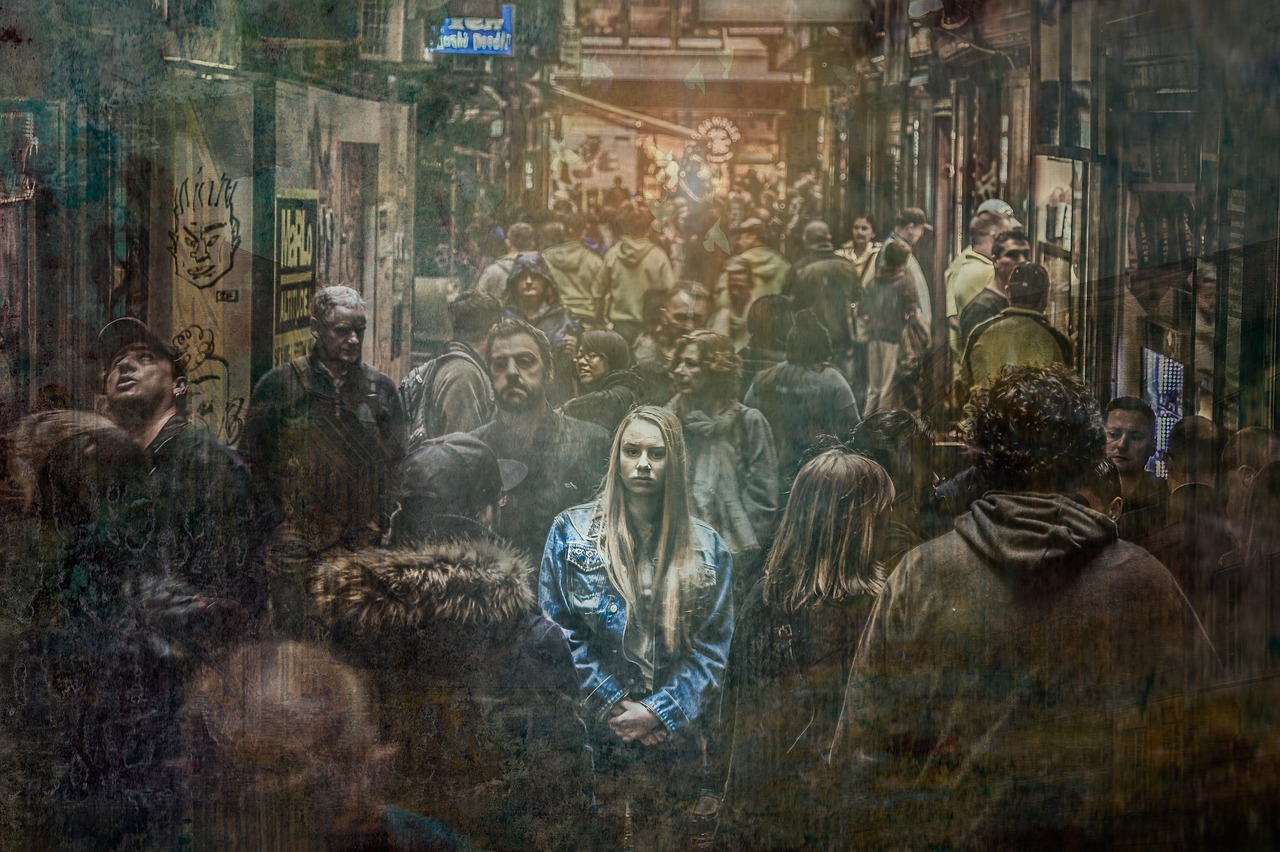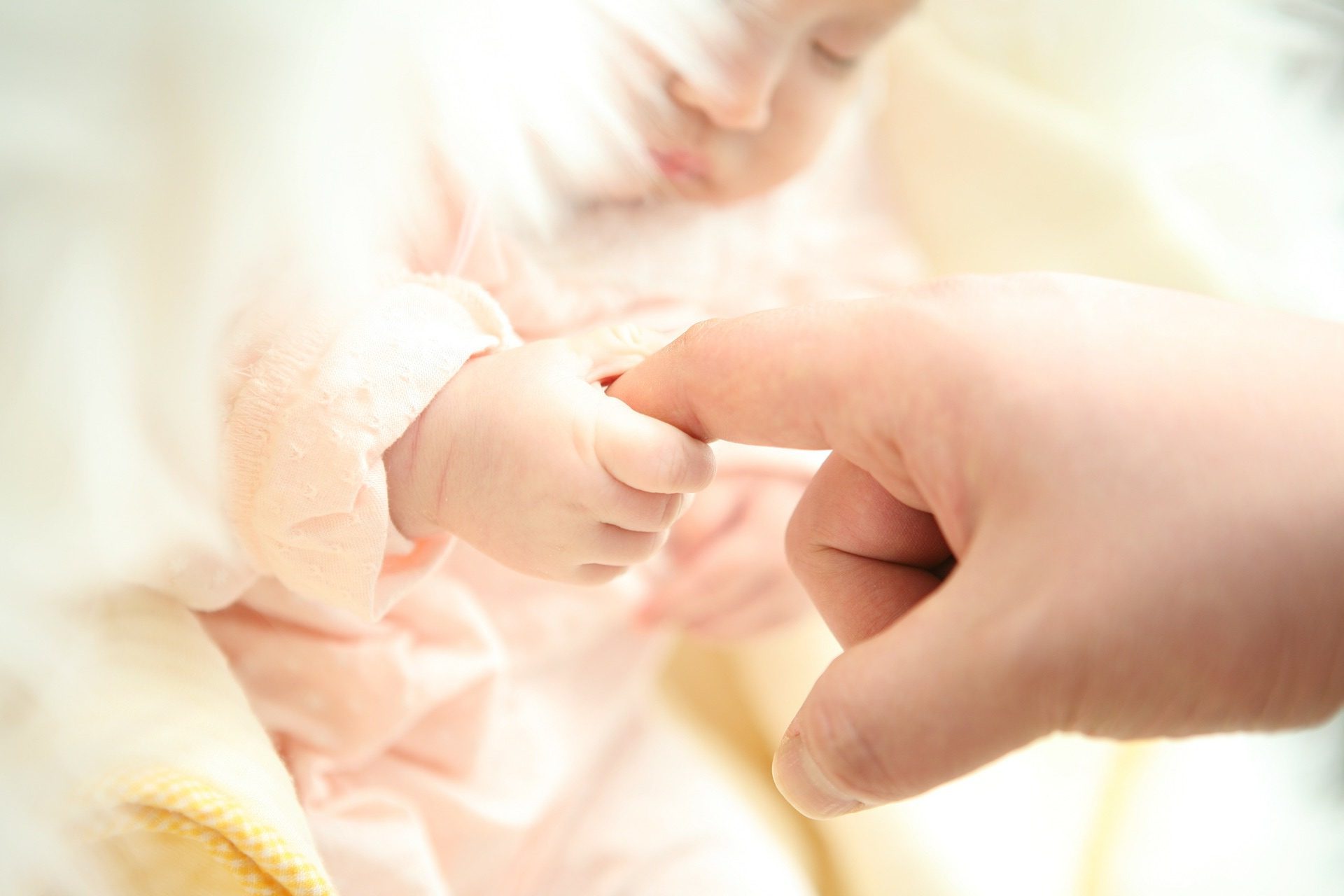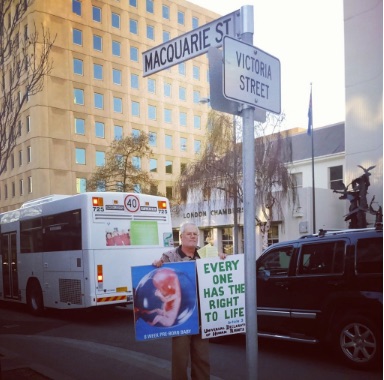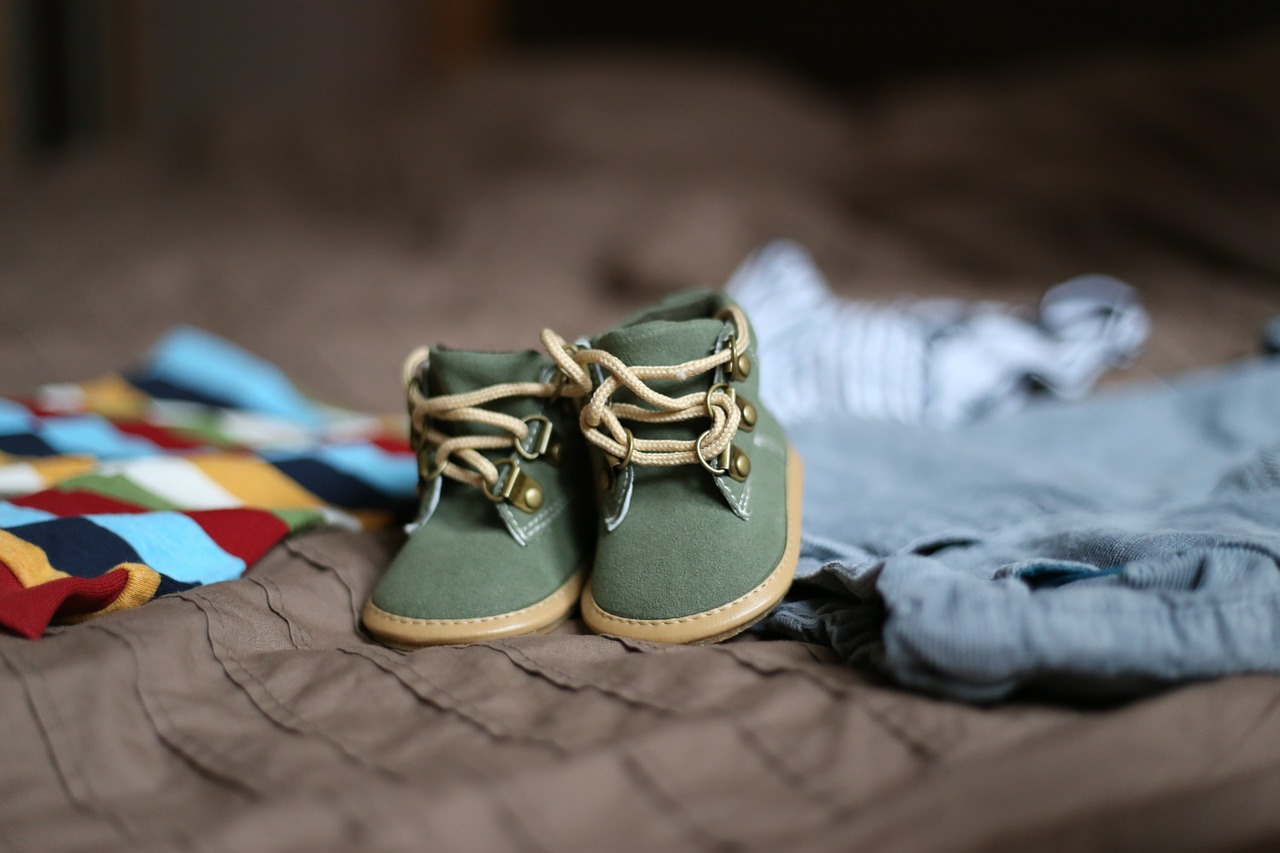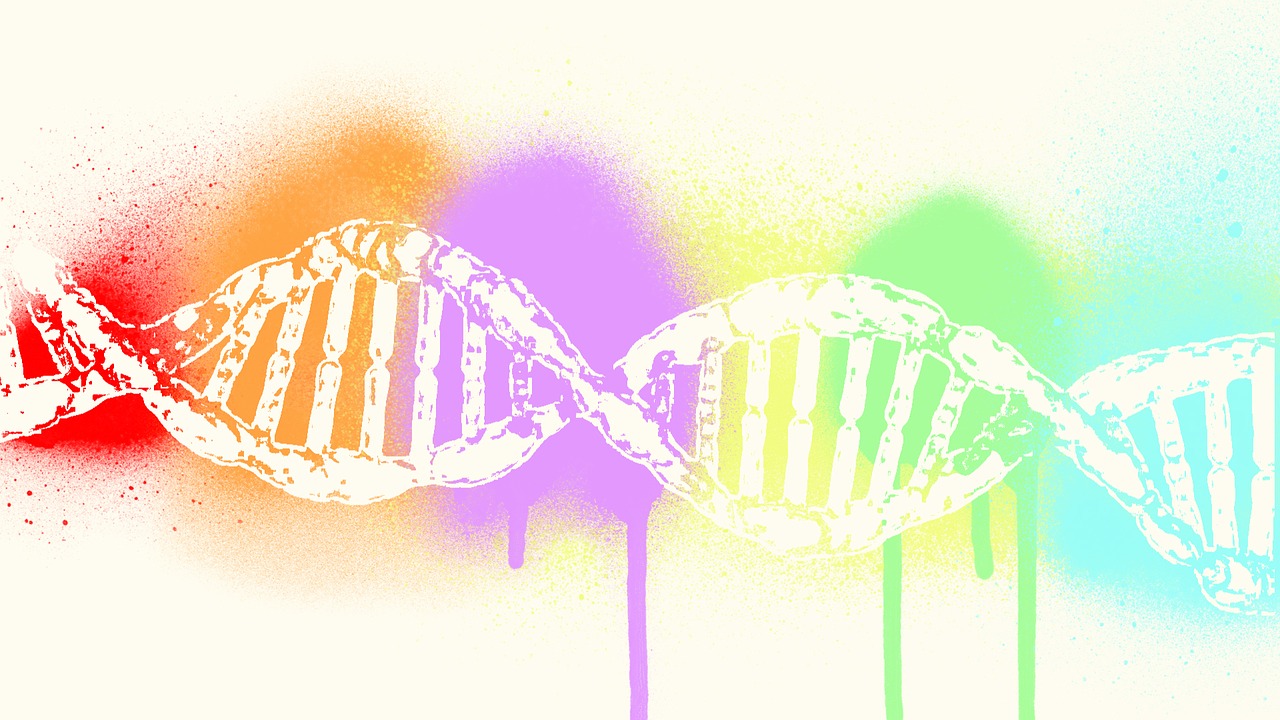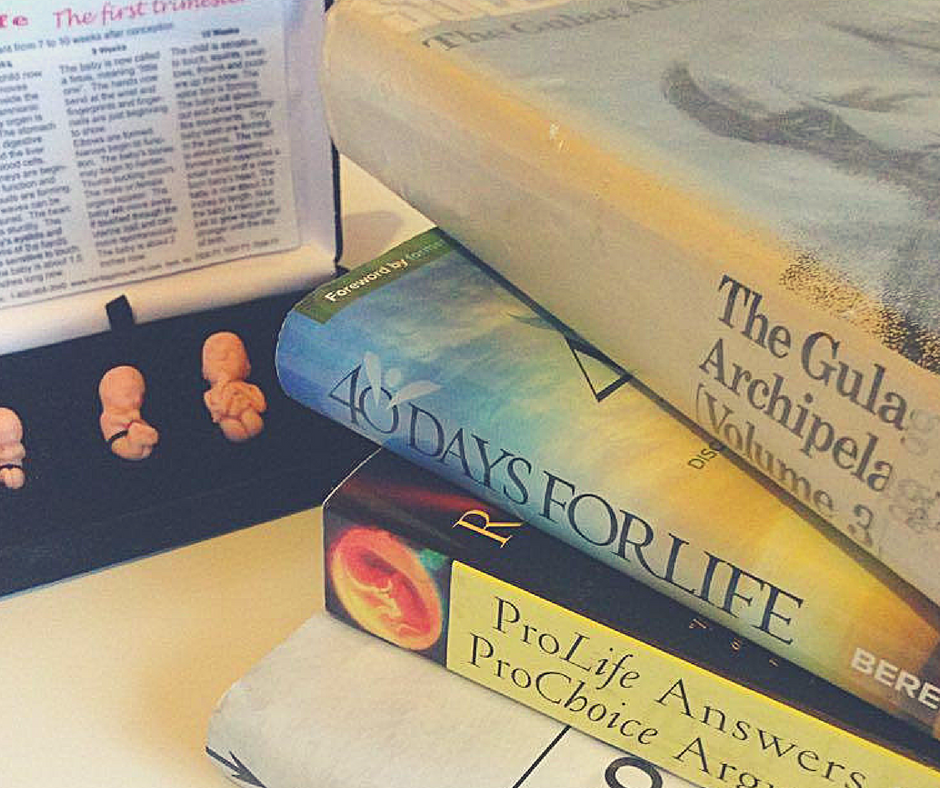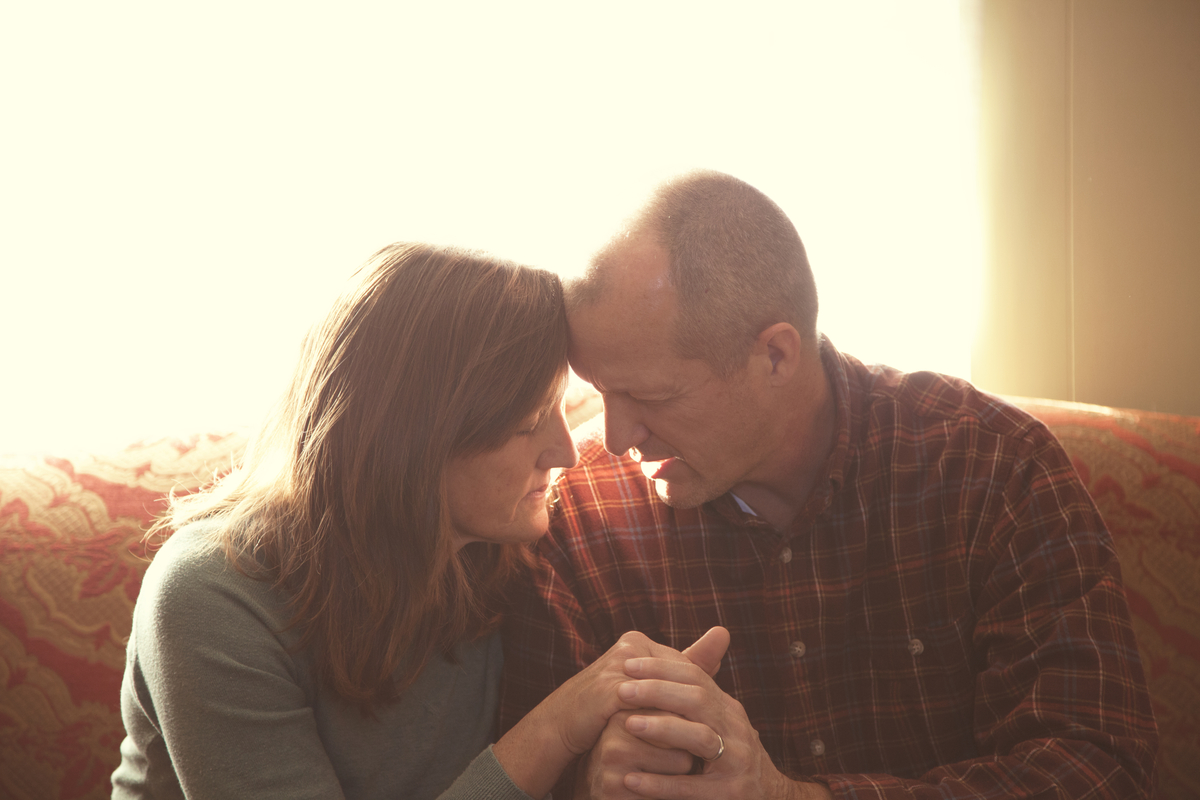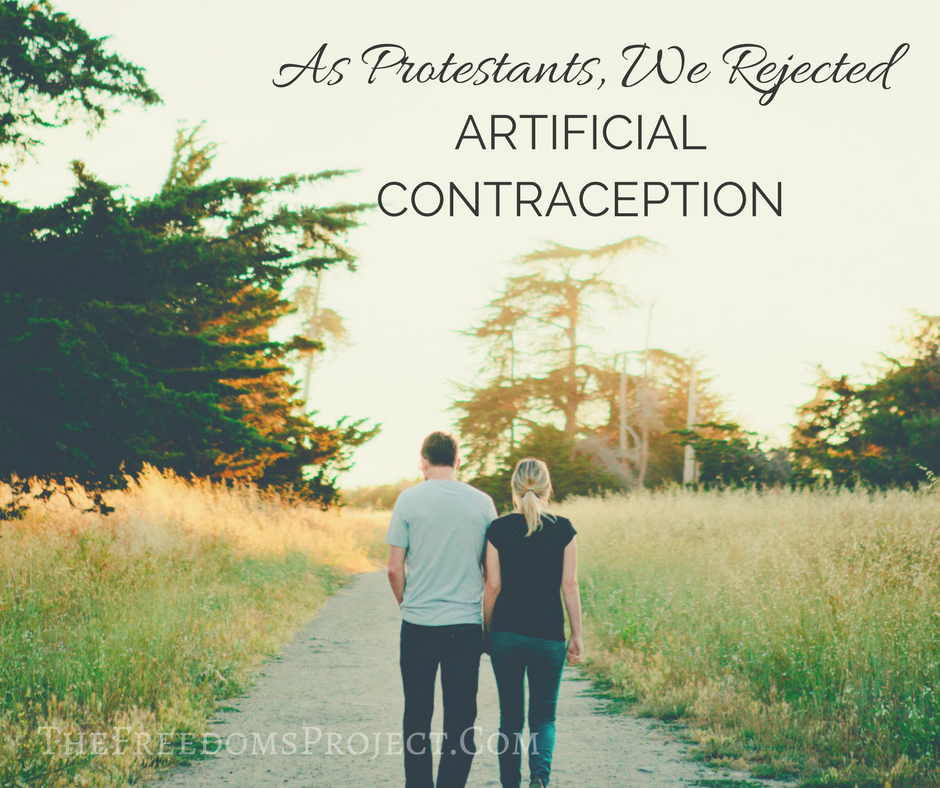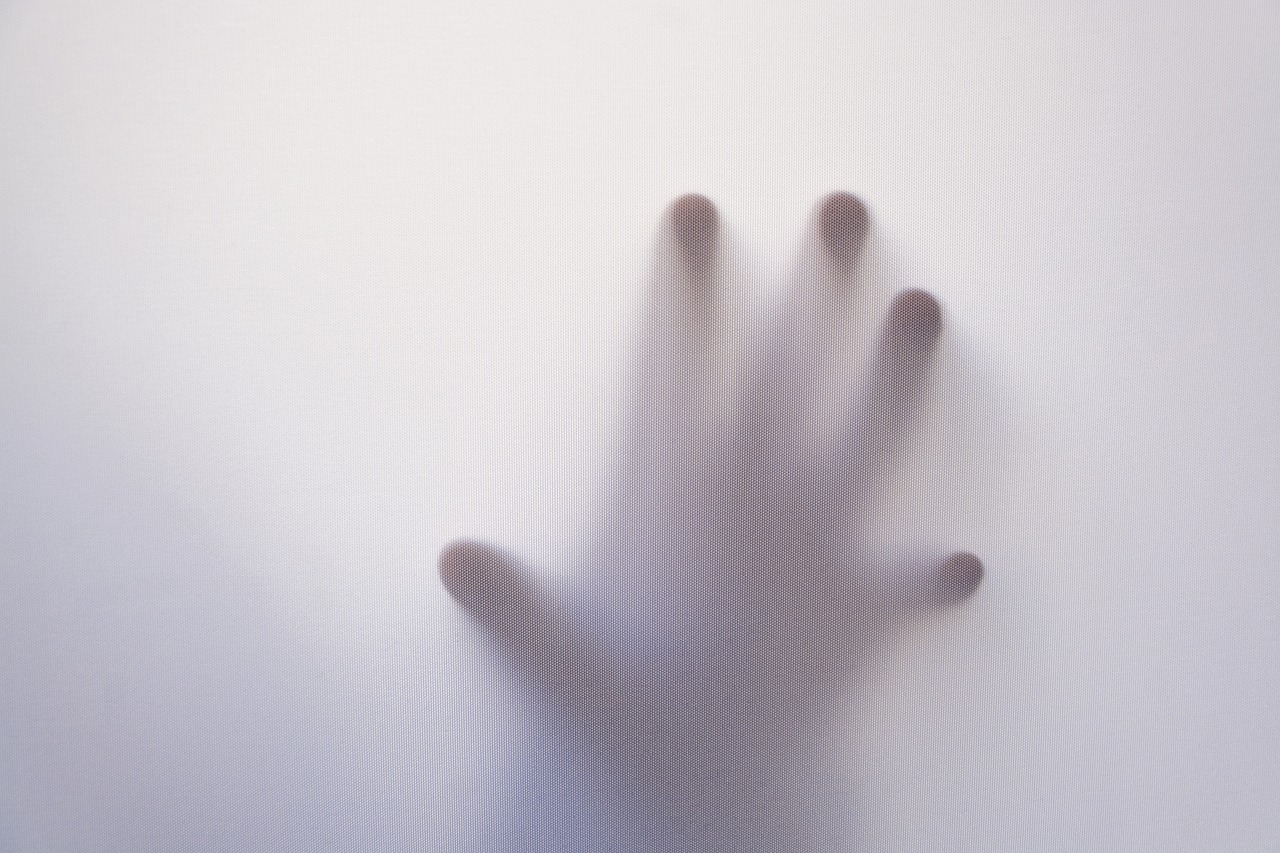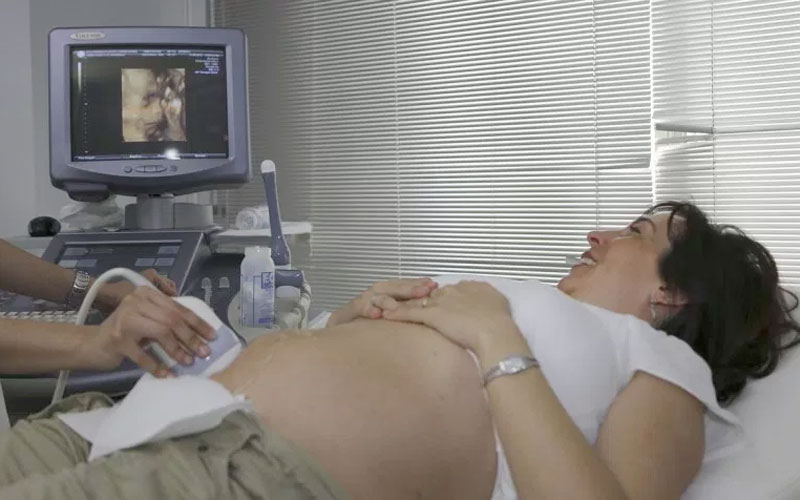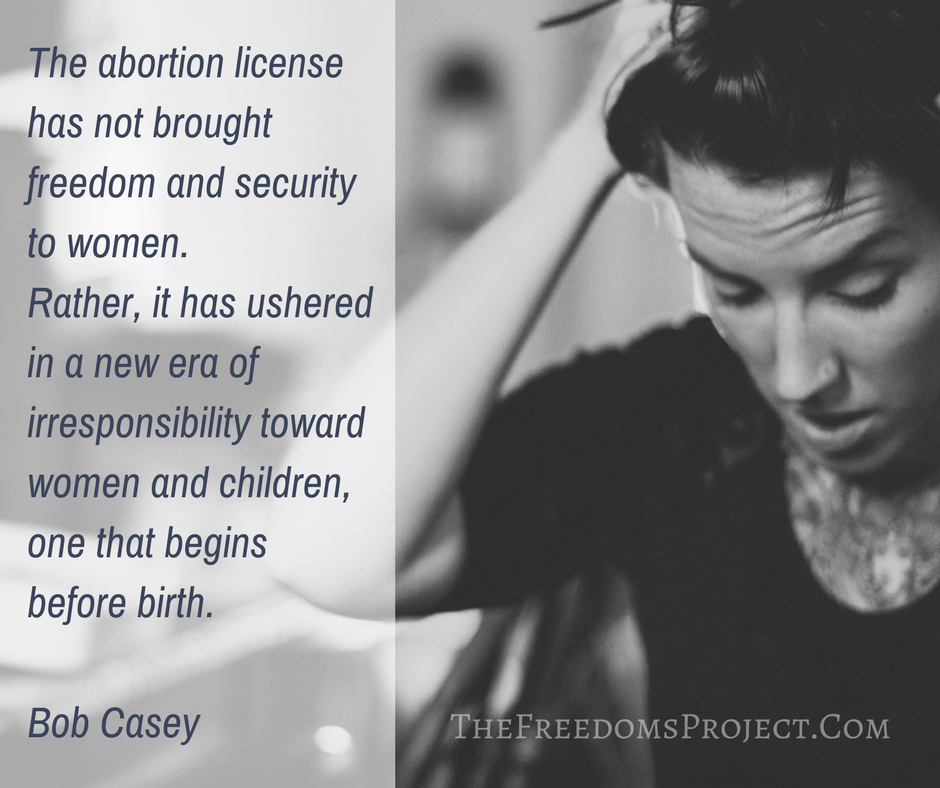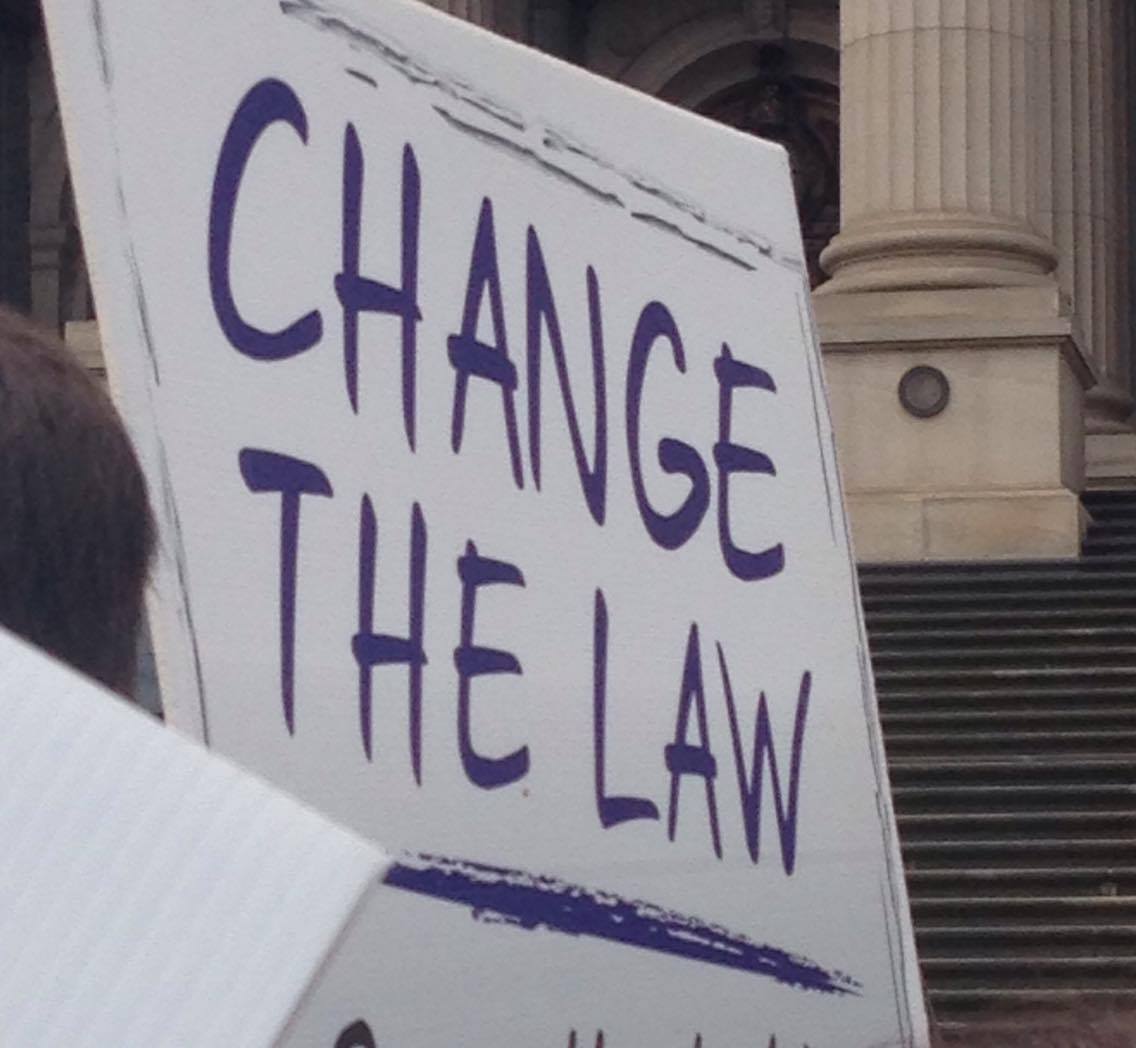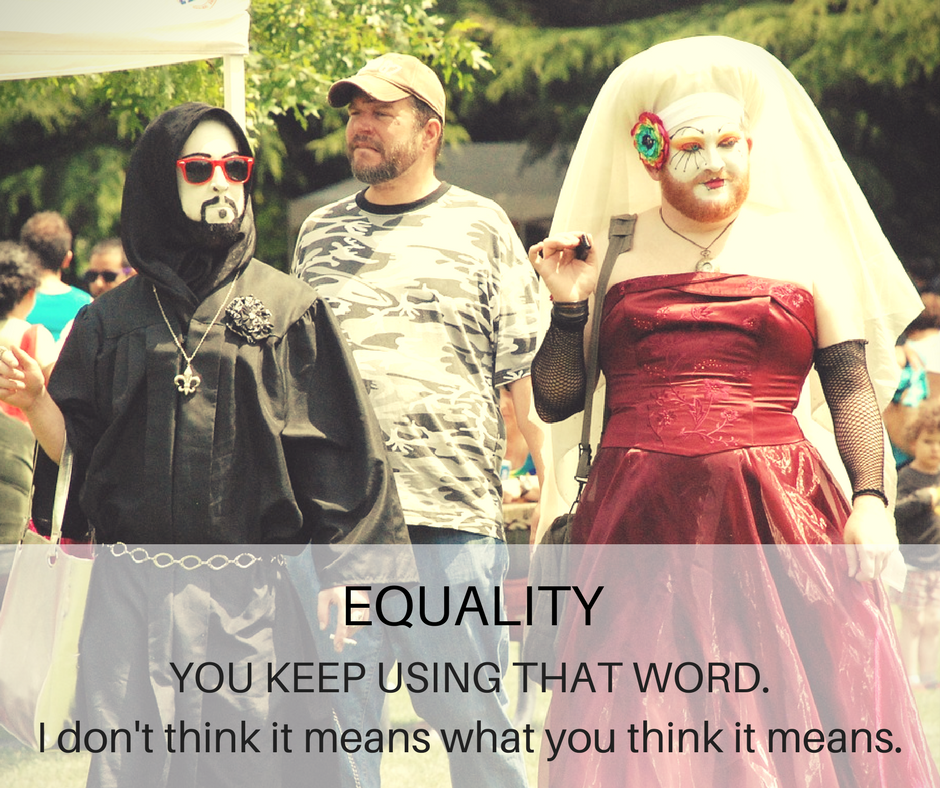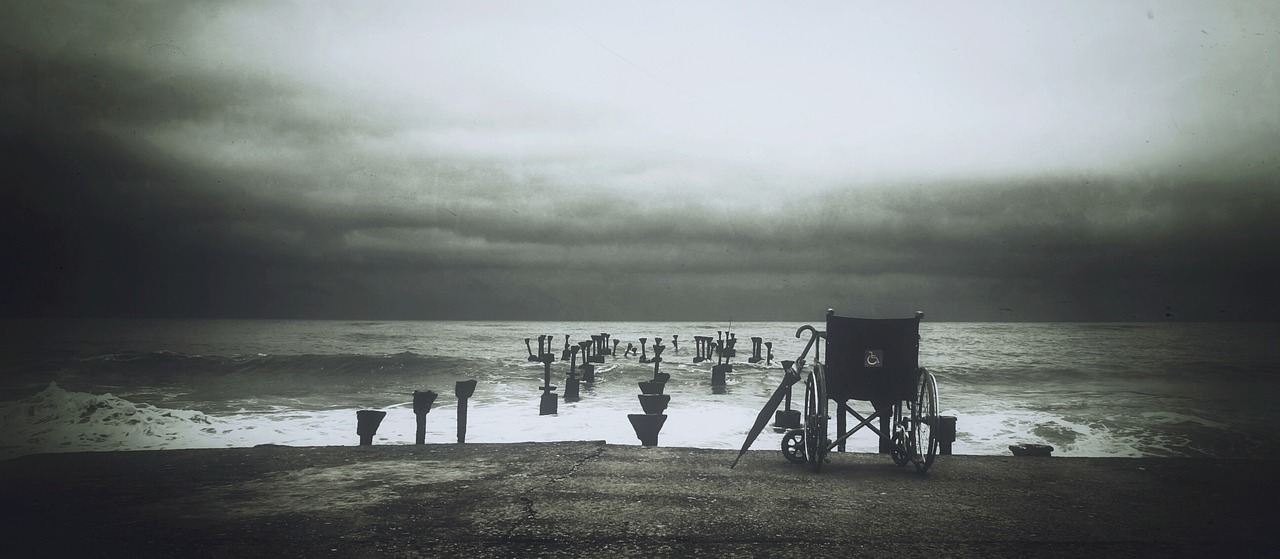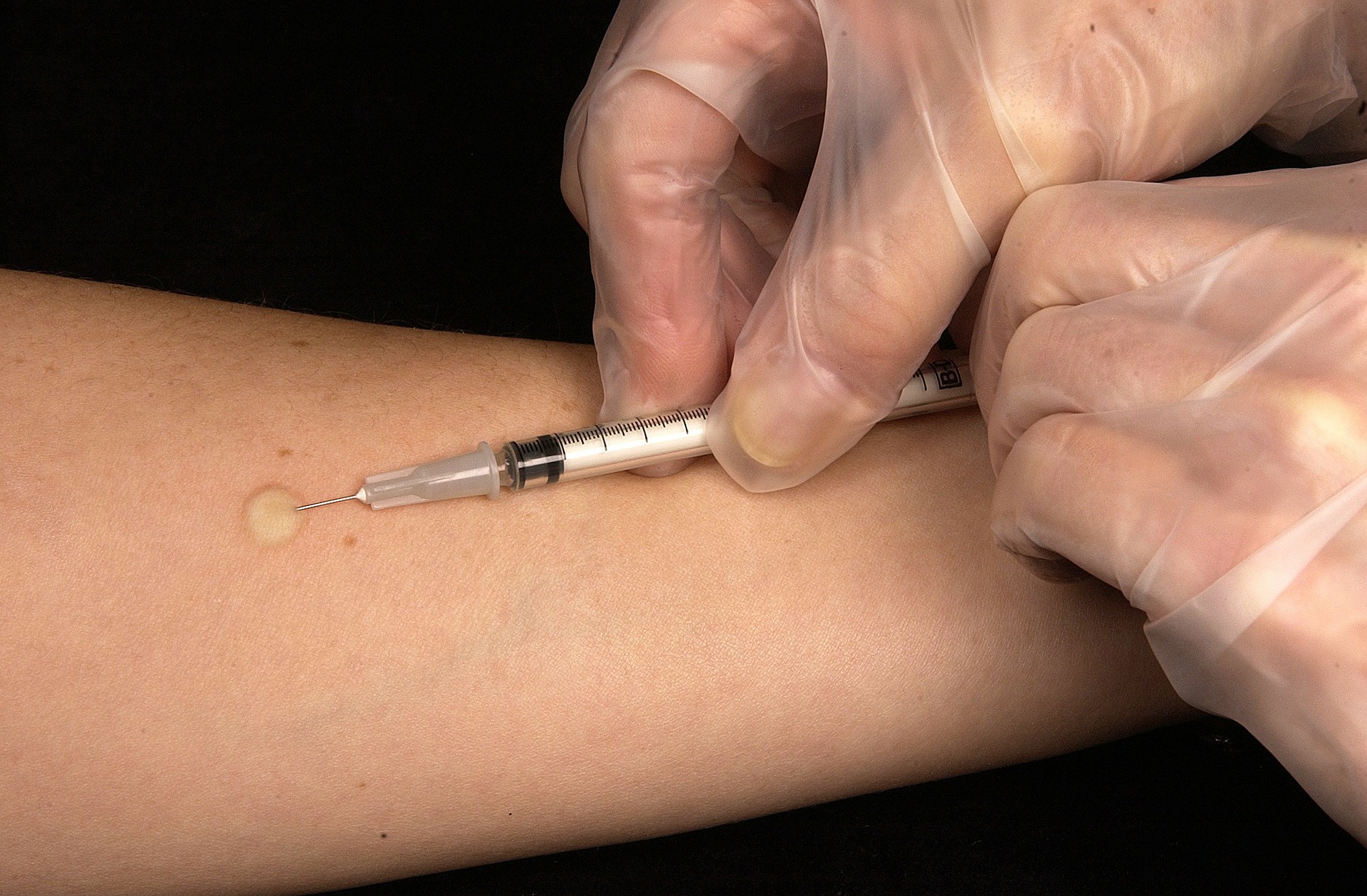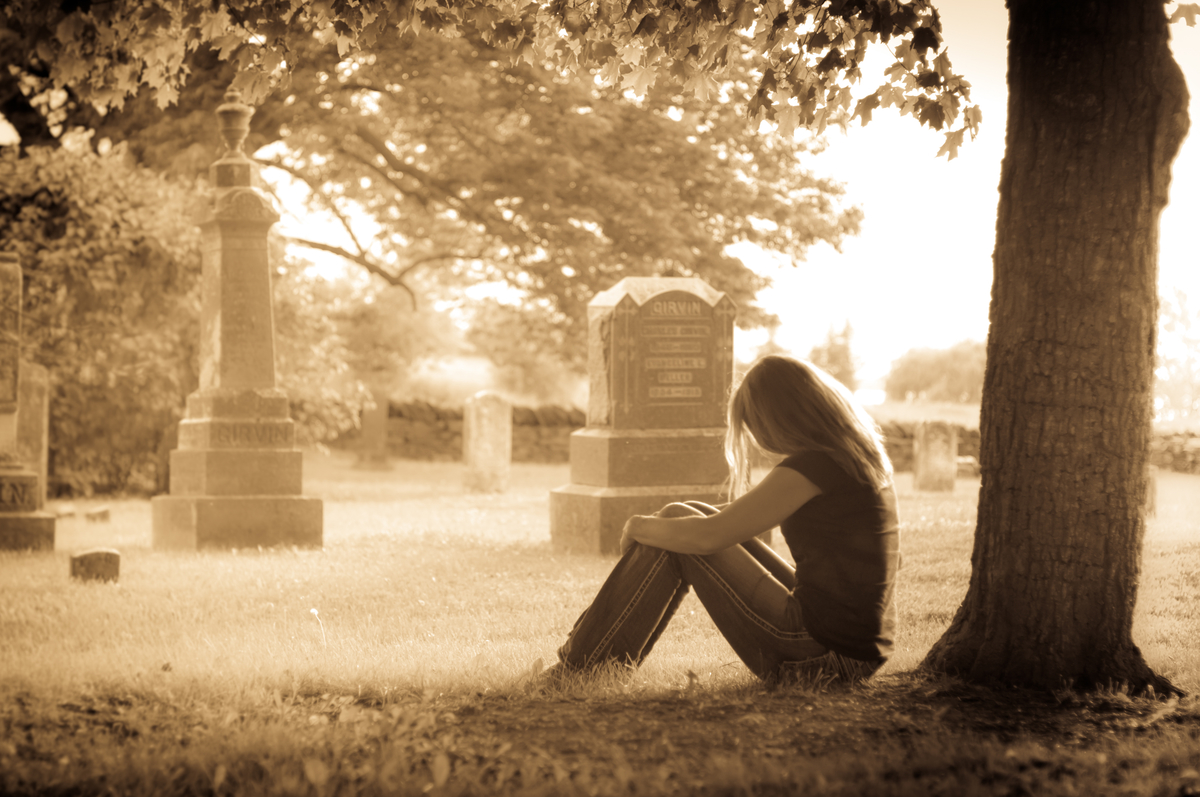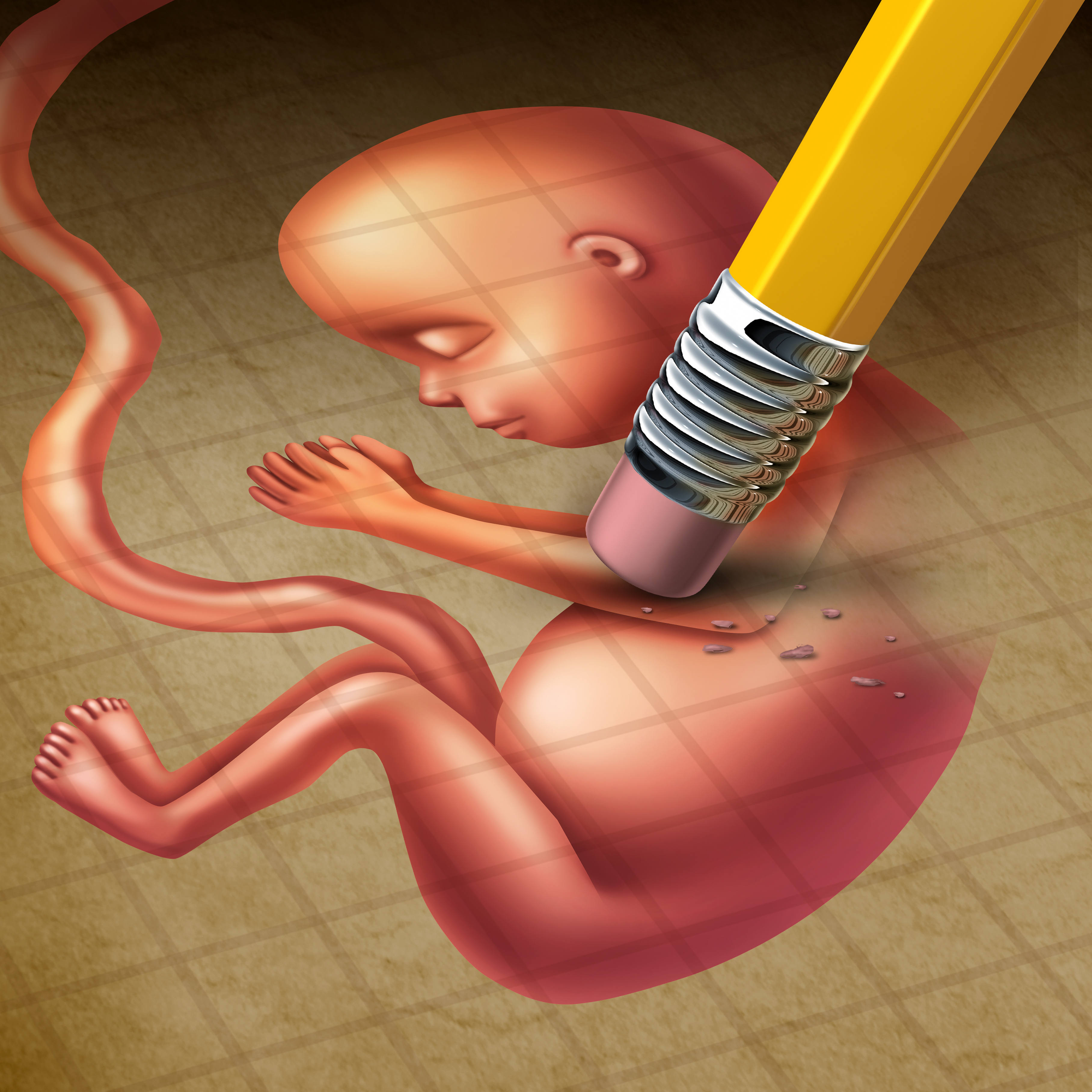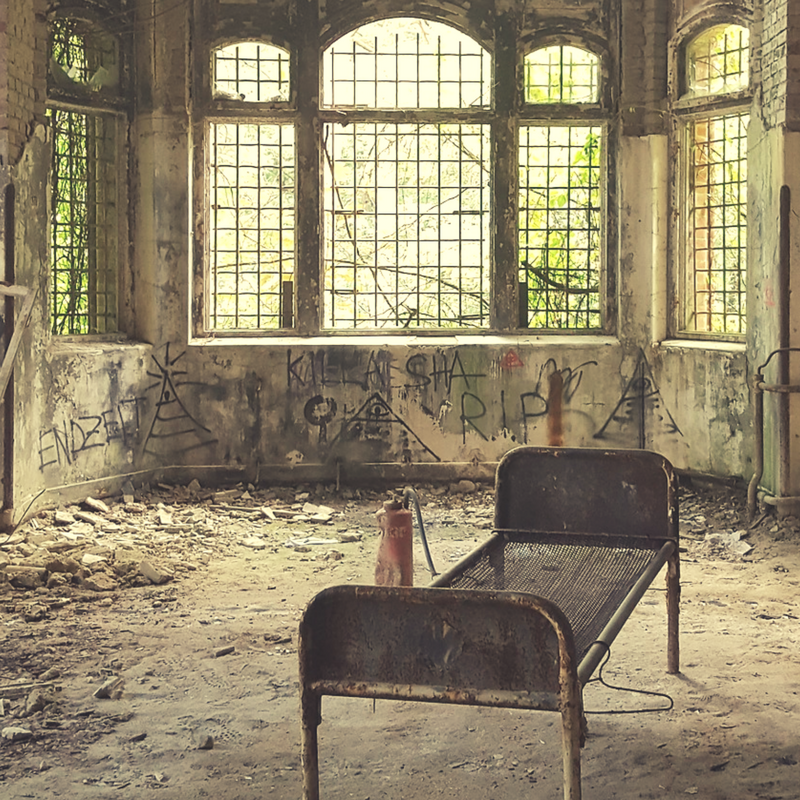"I Don't Care if I Die, I Am Not Going to Kill Our Baby"
Written by TestimonyThis testimony was written by Kirk Barker from the USA especially for The Freedoms Project. His family's story has appeared on Live Action, Save the 1 and on many other websites, and has been an inspiration to many people. Kirk and Chass are passionate campaigners who set up the pro-life organisation, Cameron's Chance, after Chass heroically chose life for their child. Kirk underwent a massive conversion because of his experience and today credits prayerful sidewalk advocates outside the abortion facility with saving his baby.
About the sources: This post draws heavily on the work of noted post-abortion counsellor, Anne Lastman, specifically from her articles posted on my old website, here and here. A full list of references to research papers is included at the end of the original articles. Personal testimonies included as quotations are from a recent study by Priscilla Coleman et al, which reinforces previous research about abortion's devastating effects on men and women. Information about the impact of abortion on men is taken from the MAN [Men and Abortion Network] website.
This article came up in my newsfeed and found it so interesting that I asked permission to reproduce it here. The author is Michael Spielman, founder/director of Abort73. Abort73 describes itself as 'an online resource designed to creatively and comprehensively educate students about the injustice of abortion, and provide them with simple tools to help pass that education along to others.' I hope you'll have a look at their website here and you can find the original article here.
I would like to share our son Joseph’s story in the hope of helping others who might find themselves in a similar situation. Joe’s journey so far has been one of hope and joy, fear and doubt, courage and trust, tears and anxiety, but most of all LOVE and the blessing of choosing LIFE over death. Joseph is our 11th child; he was born with a congenital heart defect known as Hypoplastic Left Heart Syndrome (HLHS) where the left side of the heart is too small. He was born at the Canberra Birthing Centre on the 4th October, 2001. We all thought he was a normal, healthy baby just like his other siblings. We were definitely blissfully unaware of and unprepared for what lay ahead of us.
It is a pleasure to bring Good News to the Tavern and boy did we get some over the past few days. I have been very busy of late, what with a splendid picnic in the fine weather after a 'bells and smells' Mass in the tiny Church in Colebrook at the weekend. So much incense that you could not even see a stick to shake ! Many came from all over the State to give our new Monks a good welcome. And the news we shared was equally splendid.
[Recent news reports coming out of Western Australia about a proposal to legalise surrogacy for homosexuals has again brought to the public attention this contentious issue. These various new technologies are certainly opening up a brave new world which has many experts worried.
How I Was Almost a Victim of Planned Parenthood
Written by TestimonyI feel like I have aged a thousand years since June 15, 2015. That is the day videos were released that showed a sting on illegal practices at Planned Parenthood. I have been agitated, upset and at uneasy since they aired. I have hardly slept and my mind has become troubled. I am troubled because me and my baby almost became victims of Planned Parenthood. I say victims correctly because I feel like a victim of rape or molestation due to Planned Parenthood’s unethical practices. I have come to see that Planned Parenthood is an abuser like any other. They use shame, manipulation and deceit like an abuser. An abuser of woman, babies and souls.
stand here today because I regret my abortions and I want men & women to know this road is not one they want to take. I had an abortion because I listened to the young man who said I could not raise a child on my own because I had a future–I still had to go to college. He said he wouldn’t help me. And what about my parents? They would never understand their good daughter’s pregnancy. In my confusion, shock and fear, I believed the lies. I should have realized there was a big problem with what I was agreeing to when he said he would take me where there would be no hassle (otherwise known as “protesters”).
What do you call a couple with an over-abundance of eggs and a conspicuous absence of sperm? Well, you or I might call this couple 'lesbians', but to the IVF industry, there's a more marketing-savvy term. Their category is 'socially infertile', and it's a growing market for artificial reproductive technology. IVF providers are just leaping at the chance to provide gay couples with designer babies. In fact, Sydney company, IVF Australia, is so enamoured of homosexual couples, that it has sponsored the Gay and Lesbian Mardi Gras since 2012.
What Solzhenitsyn Taught Me about Pro-life Work
Written by Kathy ClubbThis is an updated and expanded version of an article that first appeared on my website, Light up the Darkness, and entitled 'Solzhenitsyn and the Abortion Archipelago'. Unless otherwise stated, all quotes are from 'The Gulag Archipelago, Part III, 1918 - 1956', by Alexander Solzhenitsyn.
Mazie's Story: A Journey from Contraception to Life
Written by TestimonyI grew up in a very broken very liberal minded home. From my earliest years I knew that I was “the missed pill” as my Mother so eloquently liked to put it. My Mother grew up in the 50’s .... She was very young and had a few dalliances with school boys.. Nothing serious but her father got wind of it and as punishment she was sent away at aged 16 to a school in the City which trained young women to be a nurses. Some of the girls there were in the ‘family way’ and we often wonder if this is what happened to our Mum.
In 1993 God began to speak to me about taking the Pill. I had been taking the mini-pill since D’s birth in 1983. I loved it - great contraception and the added bonus of no periods.
How secular was my thinking? No thought of God’s plan for my fertility.
As Protestants, We Rejected Artificial Contraception
Written by TestimonyFor many, the link between contraception and abortion is clear: when the potential for babies is taken out of sexual activity, then pregnancy becomes an intrusion, an unintended consequence. It becomes something to be avoided at all costs – even if that cost includes taking a life. But sadly, that connection isn’t clear to every pro-life person – even to many Christians. This is the first in a series of testimonies by Christians who rejected artificial contraception because they were convicted by God to grow in faith and leave their fertility in His hands.
Voluntary assisted suicide, physician-assisted suicide and euthanasia are always sold as being peaceful solutions to the age-old problem of death. Rather than finding ways to help people accept the uncertainty surrounding this very certain phenomenon, purveyors of the death-culture can only offer their single service: murder. But experience has shown that the very symptoms patients are trying to avoid may crop up in an assisted killing:
The most comprehensive study on clinical problems with assisted suicide was conducted over a six year period in the Netherlands, where assisted suicide has been legal for many years. The study was published in the New England Journal of Medicine on Feb. 24, 2000. It found that more than 18 percent of assisted suicides experienced problems severe enough to cause a doctor to step in and euthanize the patient. In at least 14 percent of assisted suicides the patient had problems with completion including waking up from coma, not becoming comatose, and patients not dying after becoming comatose. Another seven percent of assisted suicides reported muscle spasms, extreme gasping for air, nausea and vomiting. (N Engl J Med 2000; 342:551-556 as quoted here).
So let's look again at these stats:
- 20% of cases required doctors to intervene and directly murder their patients
- 14% failed to die, ie woke up
- 7% of patients experienced distressing symptoms - far from the peaceful death they were promised. [Read more here]
These are hardly 'dignified death' - and sometimes no death even occurs!
No Guarantees
Meanwhile, the Victorian government is doing its darndest to find an effective method of killing it's second-most most vulnerable citizens. (The art of doing away with its most vulnerable - the unborn - was perfected 9 years ago, when abortion was decriminalised). The Health Department has apparently approached Monash university in an effort to procure something elegantly lethal to provide a sure-fire way of murdering Victorians. Physicians will have the motive and the opportunity, if the legislation goes ahead, but are still shopping around for an effective means. However, they might have a small problem: death-inducing drugs are not as failsafe as they're purported to be. Here's a statement from end of life researcher Sean Riley: [Read more in this article]
The pervasive belief that these, or any, noxious drugs are guaranteed to provide for a peaceful and painless death must be dispelled; modern medicine cannot yet achieve this. Certainly some, if not most, executions and suicides have been complication-free, but this notion has allowed much of the general public to write them off as humane, and turn a blind eye to any potential problems. Executions or PAS have never been as clean as they appear, even with the US’s medicalization efforts during the 1980s."
Is it Dignified to Die of Loneliness?
This 2014 article mentions nine cases of patients with psychological problems who had been euthanised the previous year in the Netherlands. Their problems ranged from an extreme germ phobia to intense self-hatred. One common denominator in all the cases is that the patients appeared to have no-one to support them in living; they seemed to be extremely lonely people. These were not patients suffering from unendurable physical pain or terminal diagnoses. Surely we can do better than to condemn those suffering from feelings of isolation and those who have mental health issues to death? Surely we can provide some hope for these sick, lonely people? I found the most chilling part of the article to be this statement:
Over sixty percent of Dutch GPs and specialists who took part in a study at the end of 2012 stated that committing euthanasia on psychiatric patients was “inconceivable”.
Euthanasia advocates may want to rethink their opposition to slippery slope arguments: only one year before these patients were euthanised, the medical establishment had considered that PASE on these grounds to be unthinkable.
The Man Who Woke Up
The case of David Pruiett is one that many would sympathise with. Here was man who was actually suffering from a terminal illness and who had only a short time to live; he was terminally ill with lung and bone cancer. Pruitt decided he would prefer to choose the hour of his death rather than wait for nature to take its course. After consuming the powder from 100 barbiturate tablets, he became unconscious but woke three days later. Pruiett then asked his wife why he wasn't dead yet.
Pruiett, 42, is the only Oregonian to survive a full dose of the barbiturates prescribed under the state's physician-assisted suicide law. After waking up, he reportedly told his wife that while he was unconscious, God had told him that his action wasn't the way to get into heaven. He died from lung and bone cancer two weeks after his failed assisted-suicide attempt.
This story should jolt Christians who approve of assisted-suicide out of their spiritual slumber. Apparently God isn't happy for a mortal to deliberately shorten his own life by even as little as two weeks.
Unhappy With a Sex Change
This case is very sad. It is really just another case of severe loneliness and lack of loving support. A woman felt from birth that she wasn't welcome in her family due to her gender. She underwent hormone therapy and invasive surgery in order to become a man, but the operation didn't go as expected:
"I was ready to celebrate my new birth," he told the newspaper. "But when I looked in the mirror, I was disgusted with myself. My new breasts did not match my expectations and my new penis had symptoms of rejection. I do not want to be... a monster. "
After 6 months of counselling, Nathan Verhelst - born Nancy - felt so dissatisfied with herself that she asked to be killed. This case illustrates the twin tragedies of gender reassignment and failure to offer unconditional love to a family member. This highlights the inability of society to support vulnerable people, especially when the option of state-sanctioned murder is readily available.
Philip Nitschke's Disturbing Habit
Philip Nitschke is a world-renown expert on suicide advice, having authored books and a website describing the finer details of killing oneself. While governments spend millions on trying to halt the rising rates of suicide, Nitschke instead tries to help unhappy people leave this mortal coil and attempt to find peace in annihilation. Nitschke was a medical doctor, until deregistered in 2015; as well as advising on suicide tips, he has also personally assisted some of his patients to die. His biography uncovers some startling facts about his response to taking a life. The following is an extract from this article:
In the first set of page proofs of Damned If I Do sent out by Melbourne University Press, Nitschke was at his most candid. "After performing my role in those deaths, I had an urgent and pressing need for sex," he wrote. He was having an affair with a journalist and the sex, he says, was "frantic and sometimes desperate". But in a later set of proofs, the section is toned down. Sex has become a "desperate craving for intimacy".
Nitschke goes on to say:
"There was this immense feeling of being alive. And then taking a deep breath ... and almost immediately, this sexual urge. It was a way I could demonstrate to myself that I was alive. It wasn't me that was dead."
The response itself is quite bizarre, but his explanation is even stranger. For why would an advocate for suicide be relieved that he was still alive? Perhaps he knows deep down that there is actually something wrong with assisting in such an unnatural death. And speaking of Nitschke, who can forget this case of the Exit International follower who took his own life in a foreign country, leaving his poor family to put together the pieces surrounding his unexpected death?
Judi Taylor’s young and healthy son, Lucas, died of illegally assisted suicide in 2012. Judi says her son’s every step and every instruction — and strong encouragement — came from a Peaceful Pill online forum run by Exit International, the pro-euthanasia lobby group run by now-former medical practitioner Philip Nitschke. What’s disturbing is the entire legal system and government – which claims to be concerned about reducing Australia’s high rate of suicide – is seemingly uninterested in reducing the illegal trade in assisted suicide. In fact, Victoria is currently leading the reckless charge to make the predatory death industry legal.
I highly recommend watching this series of videos in which Judi Taylor describes her heart-breaking experience. [Click here to watch the videos.]
Support Staff have Dignity,Too
This article describes a paper which examines the effect legal euthanasia is having on the medical fraternity in Canada. The author interviewed medical staff to find out how their work had changed since the introduction of assisted suicide. The words of oncologist, Dr. Madeliene Li, are in italics:
Figuring out the best method for death was also complicated. In Oregon, where assisted death is legal, doctors can write patients a description for a lethal oral medication and then walk away. Canadian physicians were surprised to learn that the barbiturates used in that protocol weren’t available here. Instead, doctors and nurses deliver a series of drugs intravenously, a process that is far more intimate than writing a prescription. Assisted death, the polite euphemism used to describe the act, is really a misnomer. Doctors don’t “assist” in a death; they are the active agents. “We are doing euthanasia,” says Li. “We are actively ending a life. And it’s very new to us.” Not only is it new, but the transition from healing to killing is often very difficult for those involved. Li mentions her shock at the moment she realized that it wasn’t necessary to sterilize the syringes used to dispatch the patients. The new “right” of patients to have someone kill them sent shockwaves right through the medical community: …she realized that assisted death affected everyone in the building—the volunteers and the translators, the porters who transport the lethal drugs across floors, the housekeeping staff who could find themselves cleaning a room where [a] person had been killed.
This is yet another unexpected outcome of legalising VAD anywhere: it's not only patients and their families who are affected, but also doctors and other staff, and even cleaners who must carry the burden of being complicit in the death of another human being.
There can be Dignity in Death, but not in Killing
It has always been part of what makes us human to comfort the dying, to minimise their pain wherever possible, to calm their fears, to simply sit and be with them. Some elements of death remain a mystery both to those who have faith in an afterlife and to those who don't. All cultures have recognised this and have created rituals which help ease the dying from this life. These efforts underlie the fact that death can be dignified when patients are respected and honoured as being intrinsically valuable. Physician-assisted suicide and euthanasia falsely mimic respect and honour by cutting off the natural process of death. Speaking specifically of the Victorian Voluntary Assisted Suicide bill, Paul Russell, from HOPE: No Euthanasia reminds us:
Furthermore, if the bill is passed, nothing will be known about the length of time between ingestion of the experimental drugs and loss of consciousness – or even between ingestion and death, or failure rates of such drugs. Incredibly, there is NO requirement for a health practitioner, or even a witness, to be present when this experimental lethal cocktail is ingested.
Man's forays into the realm of hastening death are fraught with dangers, both ethical and medical, and give absolutely no guarantee that death in a PASE scenario will be any more dignified than a natural one. As Victorians brace themselves to hear the outcome of the assisted suicide bill debate, these dangers should be uppermost in the minds of all parliamentarians.
Abortionist Calls Ultrasound Baby a 'Little Black Hole'
Written by Kathy ClubbFrom time to time, I think about a strange comment made by a doctor on the ABC documentary ” Inside the Clinic“. [Unfortunately, only the trailer is available now; I had made a transcript when it was first released.] The program followed the day-to-day workings inside the abortion facility where I once witnessed in suburban Melbourne. Some of my friends were interviewed for the program. This is the same doco that I wrote about in the article: “The Australian Abortionist Who Wants America’s Dead Babies” . In that post, I talked about a doctor from this same abortion facility who said she enjoyed her work and ‘was inspired’ by it. So …. she enjoys killing babies for a living. A male doctor is also featured, and was shown assessing an ultrasound image of a 7 week foetus. He said that the ultrasound showed a ‘dark little hole’ consistent with this gestation.
How Abortion Has Changed Women's Experience of Pregnancy
As wonderful and awesome as it is to be with child, we know it's also possible for mothers to face pregnancy with mixed feelings. This is only natural. Fear of childbirth was especially understandable in the past, when medical knowledge was more limited than it is today. Mothers frequently died due to complications that are easily treatable now. And there have always financial and other pressures that have meant the idea of a new pregnancy can take a little getting used to. But generally, mothers and fathers have learned to accept new life and gone on to successfully parent. Today, however, women face an added burden which simply didn't exist in times gone by. It is the pressure to abort. In the Western world and in any place where legal abortion has gained a foothold, abortion has become the default position for pregnancy - and not only for unplanned pregnancies. It's quite common in Australian hospitals and clinics for mothers to be asked, as their pregnancy is confirmed, whether they 'want to keep it'. "It's your choice," medical staff will say. And thus the pressure begins.
9th Anniversary of Victoria's Abortion Law Reform Act
Written by Kathy ClubbI'll be spending this day in court, answering my charge of violating an abortion facility exclusion zone in 2016. The "Safe-Access Zone" law is an amendment to the Public Health and Wellbeing Act, and takes this heinous abortion law to another level. Click here to read more about Safe Access zones. On October 10th 2008, Victoria enacted some of the worst abortion laws in the world. That year there were 16,084 abortions performed in the state. That equates to 44 babies killed every day. If there has been no increase in the abortion rate - which is pretty unlikely - then there are now 144, 756 little children missing from the Victorian landscape. I'm not in a position to evaluate the difference this law reform has made to the state. But, I'd like to offer a few observations on this sad anniversary.
It's possibly the most fashionable word around these days, especially in Australia. Everyone wants it and no-one seems to have it. Every media outlet, organisation and business that wants to look hip is grooming its collective beard and committing to ensuring 'equality'. Even city councils are in on the act - and who'd ever thought for a moment that councils were not supposed to treat everyone equally? Surely councils are meant to collect the garbage of bigots and libertarians alike? The Greek philosopher Aristotle had something very interesting to say about all this. He said:
The worst form of inequality is to try to make unequal things equal.
Disability and Assisted Suicide: A Lethal Combination?
Written by Peter McCullaghAt the completion of the Rio Paralympics in 2016, Marieke Vervoort, a Belgian silver medallist in the 400 metres, and a winner of silver and gold medals at the London Olympics announced to a BBC interviewer that she had completed the requirements to receive medical assistance to commit suicide at a future time of her choosing.
Marieke explained that, notwithstanding her satisfaction at winning the medal: there is also another side to the medal, the side of suffering and of saying goodbye to the sport. Because I love the sport, sport is my life. Referring to her future plans, she confided: I know when it's enough for me, I have those papers.
We think that this model, which we acknowledge is the most conservative model for assisted dying in the world, is the right model for Victoria (Professor Brian Owler)
Claiming a world’s best regulatory document inevitably recalls Bob Carr’s comment in the course of the debate on an Australian bill of rights. Carr commented that, on reading, the world’s most impressive charter of rights came from the USSR in the mid 1930s. Recently, the difference between regulation and practice in banking and irrigation has made news. It’s all about compliance. How well will the 66 recommendations in the world’s most conservative model for assisted suicide accomplish compliance? This paper will briefly consider some of the recommendations, especially in the context of other regulatory systems.
Written from a Catholic perspective, Les Jones looks at some ministries of varying denominations that exist to help mothers and fathers in the wake of an abortion.
One of the reasons people have for not speaking about abortions is the fear of offending women who have had an abortion.
If we stress that God, the Church and ourselves offer forgiveness and help to such women, we can reduce the chance of such offence.
[This is the second article on assisted suicide in the series by Peter McCullagh. Click here to read the previous article, Good Suicide Vs Bad Suicide:]
Q. What do the terms ‘climate change’ and ‘slippery slope’ (in relation to assisted suicide) have in common?
Α. Both are regularly dismissed as fictitious in ‘one liners’. In both instances, the terms predict adverse consequences. In both instances, those predictions are based on preceding events, and their value will be dependent on the accuracy of description and analysis of those events. Should the evidentiary value of relevant preceding event be poor, then the credibility of the predictions, be they concerned with climate or assisted suicide will be proportionally diminished. ‘One line’ dismissals, particularly in relation to assisted suicide, have invariably denied the existence of the preceding events on which predictions of a ‘slippery slope’ are based. Nevertheless, detailed examination of those events has invariably been absent.
What's in a Name? The Children by Choice Conference
Written by Kathy ClubbWhat do abortionists talk about when they get together? Well, judging by the lengths some abortion providers go to - they don't want the public to know about it. But the 2017 Children by Choice conference was recently held in Brisbane, and we can get some idea of what goes on behind the scenes by looking at their conference schedule and speaker list. Children by Choice is a Queensland abortion business that is notorious for offering finance to disadvantaged mothers so that they won't miss out on the essential 'reproductive care' enjoyed by their wealthier counterparts. So, if you can't afford a baby and can't afford to have it killed, Children by Choice will loan you the money for an abortion. [It's not known if they also loan money to women who want to keep their babies. Presumably not.]
If it looks like a duck and it quacks, then . . . On the same day that the Victorian Legislative Council Select Committee Inquiry into end of life choices report was released, the Prime Minister foreshadowed a new inquiry into suicide and its prevention. That evening, the ABC ‘Drive’ program ran the two news items consecutively. Whether this arrangement reflected an initiative of a program arranger or was completely fortuitous, is not known but the grouping of the two items failed to elicit any comment from the usually chirpy presenter ‘PK’. Nor were any text messages from listeners received by the ABC (or at least none were aired). Perhaps this was an early indication of a general failure to recognise that the term ‘assisted dying’ had a very well established currency overseas as a polite substitute for assisted suicide and/or euthanasia. It certainly represented an emphatic acknowledgement of the success of the Select Committee in quarantining the S word from polite conversation.
"Show Me the Money" - Market Forces and the Law of Unintended Consequences
Written by Paul Russell[The Mother Situation is a brilliant short film by Matt Day that explores three siblings and their plans to be rid of their ailing mother and to access her estate. It's a side-splitting comedy about a very dark subject that has implications for issues such as euthanasia, assisted suicide and elder abuse. The short film closes with the three accomplices waiting in their (now deceased) mother's lounge. A new character enters who we quickly learn is a real estate agent. As he provides an assessment of the value of their mother's property, the film closes at the siblings' jubilation. Michael Griffith's play, The Magnolia Tree is as far from a comedy as one can get. Similar to The Mother Situation, the play centres around three siblings, an ailing mother, conflicting directions, motives and emotions and ends with a 'kill or care' decision made by the audience. Again, it's all about the money.


